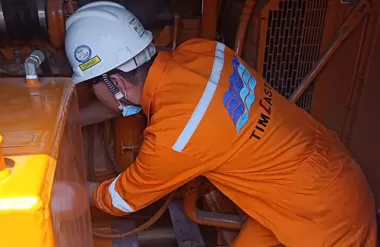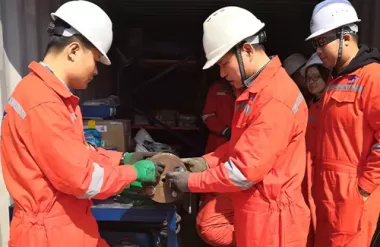Feb. 28, 2023
Flange management is an essential aspect of any piping system. It involves the inspection, maintenance, and proper installation of flanges, which are the joints that connect two sections of pipe together. The importance of flange management cannot be overstated, as it plays a crucial role in ensuring the safe and reliable operation of piping systems. In this article, we will discuss why flange management is important and the potential consequences of poor flange management.
One of the most important reasons for flange management is safety. Flanges are used to connect pipes that transport hazardous materials, such as flammable or toxic chemicals, high-pressure gases, and liquids. If a flange fails due to poor management, it can result in catastrophic accidents, such as leaks, spills, fires, or explosions. These accidents can cause severe injuries, fatalities, and property damage, as well as environmental contamination. Therefore, proper flange management is crucial to ensure the safety of workers, equipment, and the environment.
Another reason for flange management is reliability. Flanges are subject to various mechanical stresses, such as vibration, thermal expansion, contraction, and pressure fluctuations. These stresses can cause flange bolts to loosen, gaskets to deteriorate, and flanges to misalign or warp over time. If these issues are not detected and corrected in a timely manner, they can lead to leaks, reduced efficiency, increased maintenance, and unplanned downtime. Moreover, if a flange failure occurs during operation, it can result in costly repairs, lost production, and damage to the reputation of the company. Therefore, proper flange management is necessary to ensure the reliability and availability of the piping system.
Another reason for flange management is compliance. Flanges are subject to various industry codes and standards, such as ASME B16.5, API 6A, ANSI/ASME PCC-1, and OSHA 1910.119. These codes and standards specify the design, materials, installation, inspection, and maintenance requirements for flanges, as well as the training and certification of personnel involved in flange management. Failure to comply with these requirements can result in legal and financial penalties, as well as damage to the reputation of the company. Therefore, proper flange management is necessary to ensure compliance with applicable codes and standards.
Another reason for flange management is cost-effectiveness. Proper flange management can help to prevent or reduce the frequency and severity of flange-related incidents, such as leaks, spills, and failures. This, in turn, can help to minimize the costs associated with repairs, maintenance, downtime, environmental remediation, and liability. Moreover, proper flange management can help to optimize the performance and lifespan of the piping system, reduce energy consumption, and improve the overall efficiency of the operation. Therefore, proper flange management can provide a good return on investment and contribute to the profitability of the company.
Another reason for flange management is sustainability. Flanges are used in a wide range of industries, such as oil and gas, chemical, petrochemical, power generation, and water treatment. These industries consume large amounts of energy and resources, and generate significant greenhouse gas emissions, waste, and pollution. Proper flange management can help to minimize the environmental impact of the piping system by reducing leaks, spills, and emissions, optimizing energy efficiency, and promoting the use of renewable and recycled materials. Moreover, proper flange management can help to enhance the social and environmental responsibility of the company, which can lead to improved stakeholder relationships and reputation.
Dec. 12, 2023
The Basics of Electric Heat Trace Technology In the world of industrial processes and temperature control, Electric Heat Trace (EHT) technology plays a crucial role.Nov. 23, 2023
Performing a Leak Test: Step-by-Step Guide A leak test is a crucial procedure to ensure the integrity of a system and identify potential leaks in pipes, joints, or containers.Nov. 08, 2023
Main Steps of a Flange Management Procedure Flange management is a critical aspect of maintaining the integrity and reliability of piping systems in various industries.

